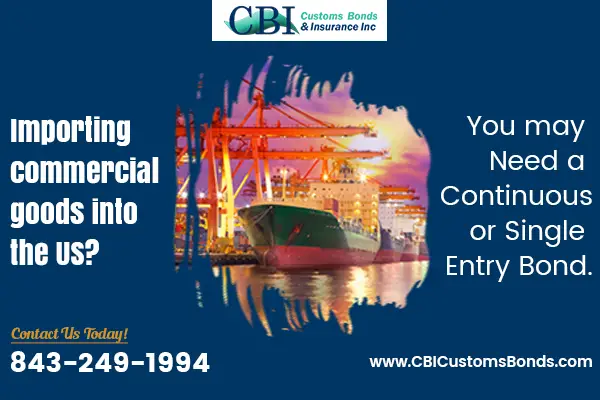Every week a new trading turn-around shapes the country’s economy. It’s probably the toughest occupation when you’re a part of the news broadcasting website or a media channel that publishes stats related to supply chain and international trading. It’s obviously beyond the understanding of a common importer. The importing surveys, reports, and cryptography may seem abstracted and baffling if you’re not one of the frequent importers. Similarly, a continuous customs bond may seem to a lot of work when you’re not familiar with it.
However, if you’re one of the people who are frequently involve in shipping large cargos, tracking logistics, and clearing a large number of imports through customs, this isn’t going to be typical for you. It’s true that dealing with the officers of the Customs and Border Protection (CBP) is a tricky task.
You may access detailed information about different types of customs bonds CA from the official website of CBP, here are some important things you should know about a continuous customs bond:
They are different from single entry bonds
A customs bond is a type of guarantee for taxes, fines, and duties required by the CBP from importers. The bond gives a kind of permission for a commercial transaction of goods that are in excess of $2,500. There are two types bond – Continuous Bond and Single Entry Bond. A continuous bond is valid for multiple imports during a period of year while single entry bond is only valid for one-time transaction during a period of 12-months.
Costs
The bond amount may vary as per the total value of merchandize to be imported. The final bond amount is always determined by the agents of CBP. A single entry bond is equal to total value of goods plus the associated duties, taxes, and other fees. However, the minimum amount for a continuous customs bond is typically $50,000 or 10% of the total duties and taxes the importer delivered in the past 12 months.
When do you require a customs bond?
Customs bonds are required for any importing goods that exceed the value of $2,500 into the US. So if you’re planning to o receives products for commercial purpose from a foreign country, you may require obtaining an appropriate bond to stay compliant with rules and regulations set by the different federal agencies like CBP and FDA.
How to obtain one
You may obtain the necessary customs bond through licensed customs brokers, freight forwarders or surety companies. They can guide through the application process and documents you would need for it. For further information on continuous bonds, you may contact a surety company/broker.






